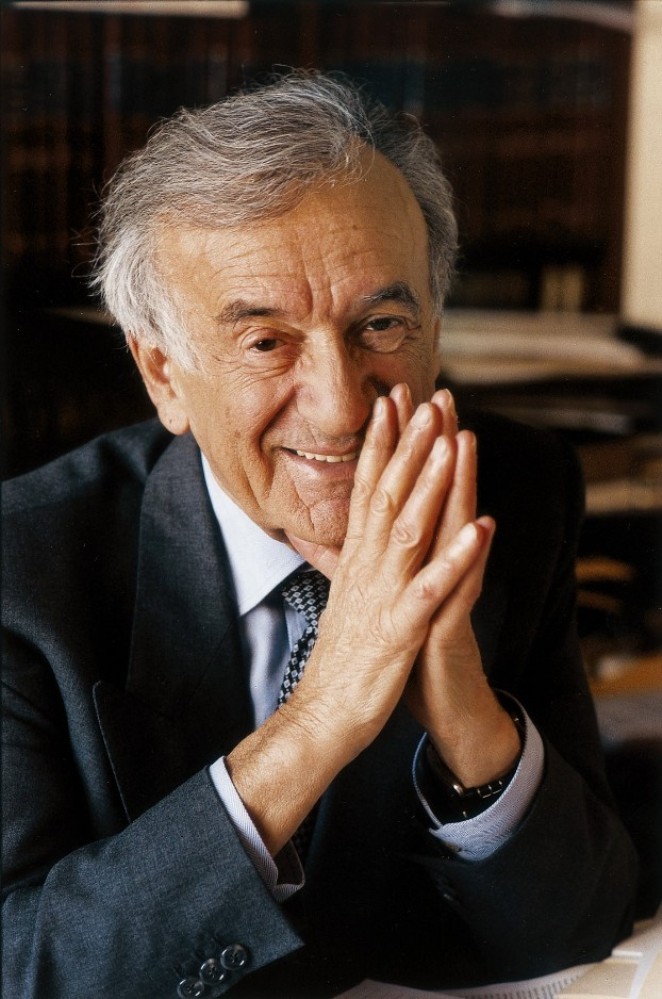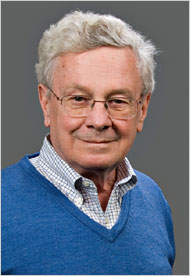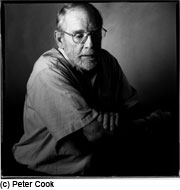2010 honorary degree recipients announced
Lehigh University will recognize the extraordinary contributions of three scholars by conferring honorary degrees on commencement day, May 24th.
Eliezer “Elie” Wiesel, the Nobel Peace Prize winning journalist, novelist, activist, educator and humanitarian, will speak to the graduating class of 2010 at the university’s 142nd commencement ceremony, and will receive the Doctor of Letters honorary degree. A survivor of Nazi concentration camps during World War II, Wiesel has devoted his life to recording the horrors of the Holocaust and focusing the world’s attention on victims of oppression and racism.
With his wife, Marion, he runs the Elie Wiesel Foundation for Humanity to “combat indifference, intolerance and injustice through international dialogue and youth-focused programs that promote acceptance, understanding and equality,” according to the foundation’s Web site.
Currently the Andrew W. Mellon Professor in the Humanities at Boston University, he has authored 57 books, many of them award-winning and critically acclaimed. He is perhaps best known for Night, the book he wrote about his experiences in the Nazi death camps, which has been translated into more than 30 languages.
An occasion that will “motivate excellence”
Other honorary degree recipients are John McPhee, a Pulitzer Prize-winning writer who is widely considered one of the pioneers of narrative non-fiction, and Daniel Callahan, a senior research scholar at Yale University, senior lecturer at Harvard Medical School and president emeritus and cofounder of the Hastings Center, an internationally acclaimed, nonpartisan research institution dedicated to bioethics and the public interest.
McPhee will be awarded a Doctor of Letters honorary degree and Callahan will receive a Doctor of Humane Letters honorary degree.
Callahan will also address the graduating class in Packer Church on Sunday, May 23, as Lehigh’s 2010 Baccalaureate speaker.
“The conferring of honorary degrees upon Elie Wiesel, Daniel Callahan, and John McPhee should motivate excellence in our graduates and inspire the commencement audience to defend our world and its inhabitants,” said David Anastasio, chair of the Faculty Honorary Degree Committee.
The honorees were approved by the honorary degrees committee and the executive committee of the Board of Trustees. Nominations for honorary degrees, as well as for speakers for both commencement and Baccalaureate, are accepted on an ongoing basis at http://nominations.lehigh.edu/.
Lehigh President Alice Gast praised the honorees as individuals whose accomplishments stand as an inspiration to the graduating class and the Lehigh community.
“Through their work, their courage and their willingness to challenge conventional thinking, each of these scholars has deepened our understanding of the world,” she said. “There is a great deal to be learned from each of our honorary degree recipients; their lives are inspirational examples of intellectual investigation in pursuit of the betterment of mankind.”
Seamless combination of details and information
Throughout his career, McPhee has written about a vast range of obscure topics, with a “seamless combination of carefully chosen details and information,” according to a review of his most recent book, Silk Parachute, in the Los Angeles Times.
His writing career began at Time magazine and led to a decades-long long association with The New Yorker. Many of his 30-plus books were adapted from material originally written for that magazine, and reflect a long list of personal interests, which include geology and nature (The Control of Nature), the Alaskan wilderness (Coming into the Country), cattle rustling (Irons in the Fire), farm markets (Giving Good Weight), the development of a hybrid airplane (The Deltoid Pumpkin Seed), traditional craftsmanship (The Survival of the Bark Canoe) and the workaday lives of the individuals who populate the freight transportation industry (Uncommon Carriers).
McPhee has received many literary honors, including the Award in Literature from the American Academy of Arts and Letters. His 1999 Pulitzer Prize for General Non-Fiction was awarded for Annals of the Former World, a geological portrait of North America. McPhee is also a renowned nonfiction writing instructor at Princeton University, and has taught generations of aspiring undergraduate writers, many of whom have achieved distinction in literature and journalism.
Steve Cutcliffe, professor of Science, Technology and Society (STS), introduced McPhee when he came to Lehigh in 2007 and read from Uncommon Carriers. At the time, he noted that McPhee’s critics praised “his beautifully articulated sentences, clear prose and participatory voice” and suggested that, 100 years from now, “his books will serve as a grand pointillist mural of our time.
“We honor both him and Lehigh by this honorary degree,” Cutcliffe added.
A pioneer in biomedical ethics
As cofounder of the Hastings Center, which was formed in 1969, Callahan took on the reins of the world's first bioethics research institute. The not-for-profit Center draws in a variety of scholars and public policy researchers to examine ethical issues raised by modern advances in medicine and the life sciences.
Supported by both federal and private funds, the Hastings Center has given attention to such critical issues as the use of psychiatric medication in children, the role of medical technology in rising health care costs, sports enhancement and synthetic biology. The Center is consulted by journalists, policymakers and the public.
Over the years, Callahan’s research and writing have covered a wide range of issues. In recent years, he has focused his attention on ethics and health policy.
He has authored more than 40 books, including the recently published Taming the Beloved Beast: Why Medical Technology Costs Are Destroying Our Health Care System. He has also contributed articles to Daedalus, Harpers, The Atlantic, New England Journal of Medicine, Journal of the American Medical Association, The New Republic, Health Affairs, and other journals.
For his work, Callahan was named recipient of the 1996 Freedom and Scientific Responsibility Award of the American Association for the Advancement of Science.
“He has taken controversial stands on issues related to basic issues of distributive justice,” said Lloyd Steffen, professor of religion studies and University Chaplain. “He has taken on the issue of the good life and the role of medical technology in how we meet society's many needs, and he addresses these questions not only in the present moment, which is filled with crisis and political conflict, but as long-term issues that will have an impact on the future and the quality of life of our children and grandchildren.”
Posted on:




